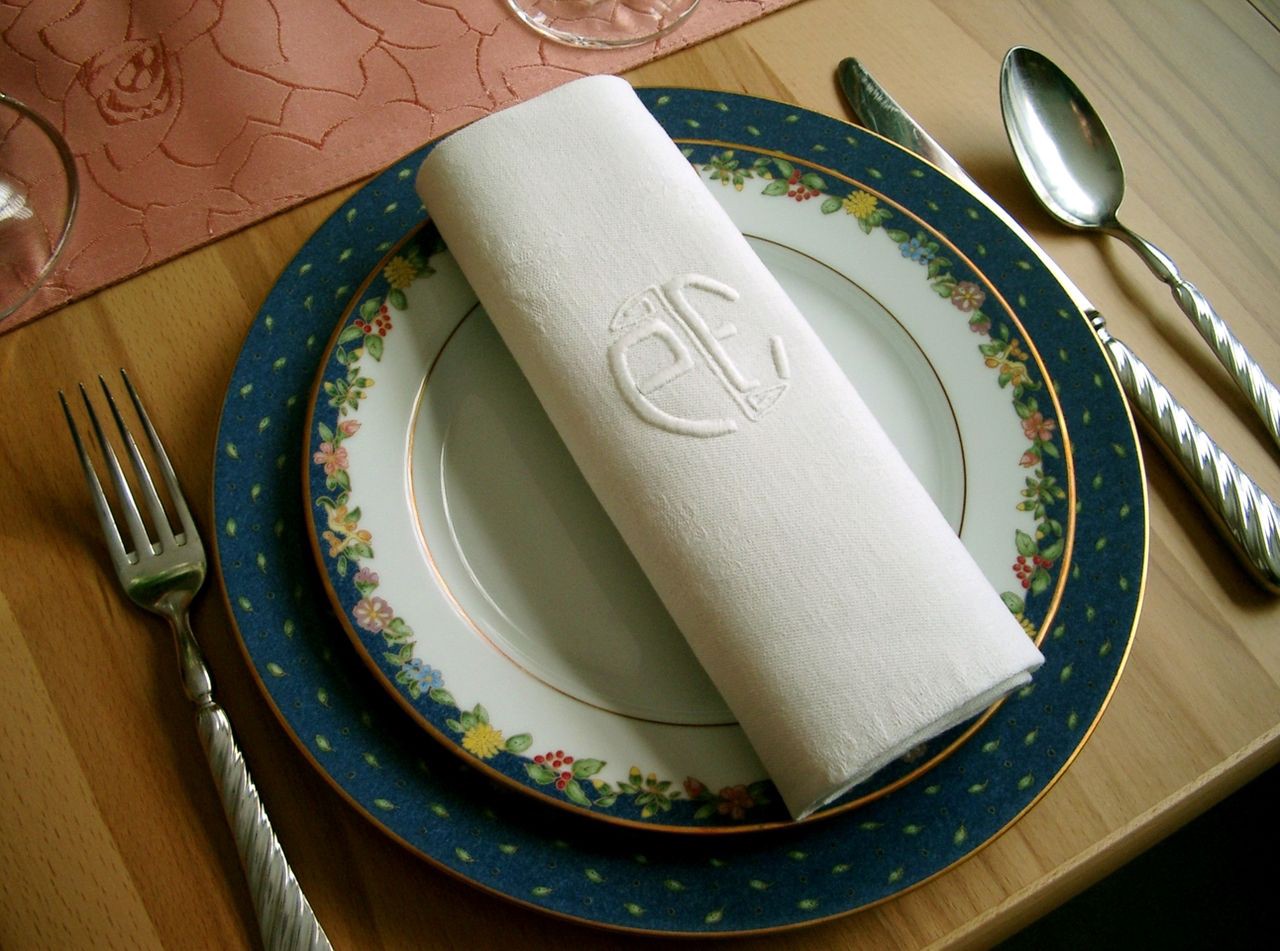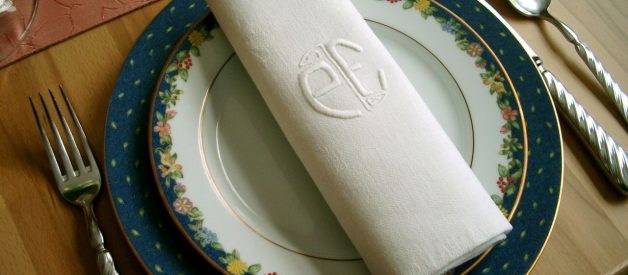 How to fill one?s plate as a food allergy sufferer can be a perplexing matter. Image credit Pecalux, CC-SA 3.0
How to fill one?s plate as a food allergy sufferer can be a perplexing matter. Image credit Pecalux, CC-SA 3.0
A red flag in health articles is when they introduce someone by the title ?Dr.? instead of specifying the person?s degree. Several types of education confer the title Doctor. Veterinarians could be called Dr. because they are doctors of veterinary medicine, abbreviated D.V.M., yet if a mole on my arm looks like melanoma I?m not going to seek a veterinarian?s opinion. I?ll want an M.D., preferably a dermatologist, because melanoma is no laughing matter. Similarly for anaphylaxis ? the type of allergy which can kill a person ? I?d want advice from a board certified allergist. Why would a veterinarian even write advice about anaphylaxis treatment in humans?
As you might be guessing, yes that has happened. It was published yesterday in an otherwise reputable regional newspaper in Pennsylvania under the headline ?Dr. Cynthia Maro: Alternative medicine used to treat allergies.? Cynthia Maro, D.V.M. promotes a protocol invented by ?Dr. Devi Nambudripad? that claims to alleviate human allergies. That would be Devi Nambudripad, D.C. ? a detail the article never specifies ? which means doctor of chiropractic. The piece makes big claims:
The treatment, called NAET, is a way not only to control allergy symptoms, but to cure allergies.
which get bigger:
I consider this therapy one of the most powerful and useful diagnostic tools and treatments available, due to the reductions in medications and cure for anaphylactic reactions and chronic inflammatory syndromes.
Yet no board certified allergist is quoted in the piece. No M.D. medical doctor weighs in at all.
Well that?s interesting.
So I decided to ask a leading professional association of board certified allergists for an expert opinion. In fairness I also wrote to the editor of the newspaper that published these startling assertions. The editor hasn?t responded but an allergist did.
First here?s a summary of what NAET is. The NAET website describes it as a ?blend of selective energy balancing, testing and treatment procedures from acupuncture/acupressure, allopathy, chiropractic, nutritional, and kinesiological disciplines of medicine.? The acronym stands for Nambudripad?s Allergy Elimination Techniques yet the site?s disclaimer begins with, ?NAET does NOT claim to cure allergies or food, chemical and environmental sensitivities? which contradicts the claims that Cynthia Maro, D.V.M. makes for it.
What if Cynthia Maro overstates things? A reasonable question would be what percentage of patients experienced a reduction of symptoms in clinical trials? The PubMed database indexes no clinical trials whatsoever for NAET. Alternative medicine isn?t being shut out from the medical journals; PubMed does index a case study on NAET authored by Nambudripad R, which is either Devi Nambudripad or a close associate because the author?s professional affiliation is Nambudripad Allergy Research Foundation, Buena Park, California ? the same location where Devi Nambudripad works. Further searches of the database find no other papers from the Nambudripad Allergy Research Foundation and only one other case study on NAET. That?s incredibly thin support for a protocol that has been in existence for three and a half decades.
David Stukus, M.D. from the American College of Allergy, Asthma and Immunology Public Relations Committee took time to respond to my questions. Below are the questions and answers in full.
1. Do you recommend NAET?Absolutely not.
2. Why or why not?NAET is not a validated method to test or treat any form of allergic disease. There is no evidence that demonstrates benefit and no plausible biochemical or physiological mechanism as to why this would even work. Those who tout benefits often use a mixture of pseudoscientific explanation and anecdotes to support their unfounded claims. Many people who claim benefit likely did not have allergies to begin with, and were diagnosed through unproven testing methods. Then, when treated for the misdiagnosed allergies that they don?t have, they magically improve. This can be extremely dangerous, however, when someone with a real life-threatening food allergy seeks any type of unproven treatment as it will expose them to their allergen and place them at risk for a serious anaphylactic reaction.
3. What should a patient or parent look for when choosing a course of treatment for serious allergies?They should seek consultation from a board certified allergist, who are the most qualified medical experts to diagnose and discuss serious allergic conditions, including anaphylaxis. If the treatment sounds too good to be true, then it most likely is not worth your time or energy. Evidence-based medicine is important to not only provide proven effective therapy to patients, but also to avoid putting them in harm?s way.
Any other thoughts your medical doctors would like to share would be welcome.There are no cures for food allergies, asthma, or many other allergic conditions. Understandably, patients living with these conditions can become frustrated with a lack of scientific progress and seek alternative treatment options. Unfortunately, there are many promises of ?miracle cures? that lack any proof of their benefit. Patients should be cautious of anyone offering such treatment, which at best will cost their hard earned money, or at worst, could delay proper diagnosis/treatment, or even cause direct harm.
The questions I sent the managing editor of the newspaper which published that piece included whether they thought a veterinarian is an appropriate medical expert to write about potentially fatal human immune disorders, queries about their fact checking policies, and why no board certified allergist or immunologist was contacted for comment before it went to publication. No response has been forthcoming.
NAET enthusiasts tend to emphasize that its protocol has existed for more than thirty years. Yet a protocol and the passage of time don?t make a treatment worthwhile; evidence does (otherwise bloodletting would still be a treatment for asthma). I have to wonder about the editorial standards of the regional newspaper which promotes NAET without reservation.


